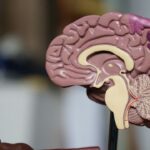A recent study published in BMJ Open Sport & Exercise Medicine reveals that engaging in a single 18-hole game of golf or walking 6 km, whether through Nordic walking or traditional walking, can significantly enhance immediate cognitive performance in older adults. This research was conducted collaboratively by the University of Eastern Finland, the University of Edinburgh, and ETH Zürich to investigate the immediate impact of three types of cognitively stimulating aerobic exercises on cognitive function and biological markers in healthy older adults.
The research included 25 healthy older adults who were regular golfers, all aged 65 or older. These participants participated in three physical activity sessions: playing an 18-hole round of golf, engaging in a 6 km Nordic walk, and undertaking a 6 km traditional walk. These activities were performed in natural settings, with the participants walking at their usual brisk pace.
The study utilized the Trail-Making Test (TMT) Parts A and B. TMT-A focuses on evaluating basic cognitive abilities such as attention and processing speed. In contrast, TMT-B aims to assess more complex executive functions, including the ability to switch tasks efficiently. In addition, blood samples were taken to measure levels of brain-derived neurotrophic factor (BDNF) and cathepsin B (CTSB), which are considered indicators of the positive effects of physical activity on brain health. Participants also used fitness trackers to log data specific to each exercise, such as distance covered, total duration, pace, calories burned, and step count. Heart rates were monitored using an ECG sensor attached to a chest strap.
The findings indicated that a single exercise session, regardless of the type, improved the more straightforward cognitive functions measured by the TMT-A test in the older participants. However, the study did not find significant changes in BDNF and CTSB levels. As evaluated by the TMT-B test, both Nordic and regular walking showed positive associations with improvements in the more complex executive functions.
This research aligns with prior studies that have suggested the cognitive benefits of short-term aerobic exercises, noting that the exercise’s intensity, duration, and nature can influence the degree of cognitive enhancement.
Julia Kettinen, the study’s lead author and a doctoral researcher in Sports and Exercise Medicine at the University of Eastern Finland’s Institute of Biomedicine, emphasized the importance of suitable aerobic exercises, like golf, Nordic walking, and regular walking, for preserving and improving cognitive abilities in older adults. She noted that, consistent with previous findings, physical activity supports cognitive health in ageing and offers potential benefits for individuals experiencing cognitive decline.
More information: Julia Kettinen et al, Cognitive and biomarker responses in healthy older adults to a 18-hole golf round and different walking types: a randomised cross-over study, BMJ Open Sport & Exercise Medicine. DOI: 10.1136/bmjsem-2023-001629
Journal information: BMJ Open Sport & Exercise Medicine Provided by University of Eastern Finland








